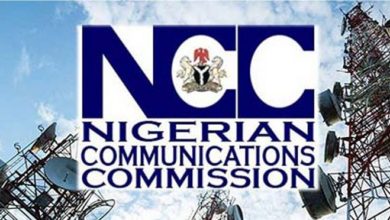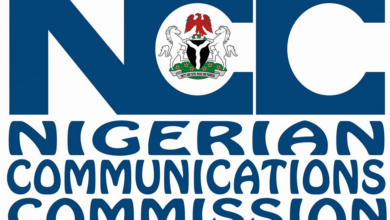Telecom Providers Begin Disconnection Of Underage Subscribers

In Complying with the Nigerian Communications Commission’s (NCC) directive to disconnect mobile lines owned by persons under the age of 18, Telecom service providers have commenced the deactivation of mobile lines associated with underage Nigerians but fear their revenue may dip as a result of cutting them off.
According to the telecom industry regulator, the implementation of the directive aims to protect minors in the country.
The implementation of the age restriction for this category of mobile subscribers is in line with the required guidelines for SIM registration issued by the NCC recently.
The move has led to the disconnection of some mobile lines registered by persons under 18.
To attest to the disconnection development, telecom operators (MTN, Glo, Airtel and 9mobile) recorded a sharp decline of over five million subscribers in three months.
The NCC latest industry statistics showed that 5,905,044 of mobile subscribers were lost between February and May 2023.
According to the NCC’s figures, the telcos had a subscriber base of 226,835,732 in February 2023. But in the month of March, the number of subscribers dropped to 225,821,293, indicating a decline of 1,015,439 subscribers at the period.
In April, the four service providers recorded a subscriber base of 223,338,215 after losing 2,483,078 subscribers.
There was a repeat of the negative record in the month of May which had a total subscription of 220,931,688 after 2,406,527 subscribers dropped off the base.
According to the NCC’s figures, MTN, the largest operator by subscriber count, was a major victim in the drop seen during the three months (February – May), as it suffered a massive loss of 7,117,576 subscribers.
The reduction in active subscriptions of the four major service providers is attributable to the disconnection of SIMs of the under-aged and those whose lines have not been linked with the National Identification Number (NIN) as mandated by the government.
In its half-year 2023 report, MTN Nigeria disclosed that it started the implementation of the restriction in the second quarter of 2023. The development led to a fall in its subscriber base.
According to the telecom giant, “In Q2, we implemented the minimum age requirement for SIM registration from 16 to 18 years, which impacted the run rate of gross connections and active data subscribers in the quarter.”
In October 2021, NCC, through its former Director, Public Affairs, Dr. Ikechukwu Adinde, explained why the commission wants Nigerians below the age of 18 barred from owning a SIM card.
The telecoms regulator said the plan is to “protect minors” and protect them from the liabilities that may arise from the usage of such SIMs.
“The age of 18 years for SIM acquisition proposed in the draft regulation is contingent on the constitutional provision, which makes 18 years the age of consent in Nigeria. Also, SIM acquisition is a contract between service providers and their subscribers, which requires the subscriber to have proper legal status, be of matured mind and rational enough to bear certain responsibilities, obligations and liabilities imposed by a contract.
“The proposal is, therefore, to protect minors. Parents and guardians can acquire SIMs in their names on behalf of their children and wards in which case they assume whatever responsibilities or liabilities that arise from the usage of such SIMs, a measure expected to also strengthen national security.
“While the commission is progressively pursuing digital inclusion for all, the draft proposal is intended to guarantee increased monitoring of children and shield the minors from undue liabilities in line with NCC’s Child Online Protection drive,” the commission explained.
According to statista.com, there were over 1.8 million full-time undergraduate university students in Nigeria as of 2022. In the same vein, in the school year 2018/2019, there were around 27 thousand senior secondary schools in Nigeria, for roughly 5.2 million students. The official junior secondary education age in Nigeria is ages 12 to 14, while the official entrance age to senior secondary education is 15, with study duration being three years.
According to industry observers, the implementation of the disconnection policy by the telcos will definitely hit their revenue bottom line, unless it is strategically done.
According to a financial statement published on the Nigerian Exchange Group (NGX), MTN Nigeria reported a drop in its H1 result in 2023— January 1 to June 30, 2023. The telco reported a 29.14% decline in its profit for the period under review of N128 billion, compared to N181 billion during the same period in 2022.
The development will definitely not be different for the other operators.
Also of concern is the huge number of the underaged subscribers that will be deprived of the benefits of financial inclusion and E-learning.
Source: www.independent.ng




